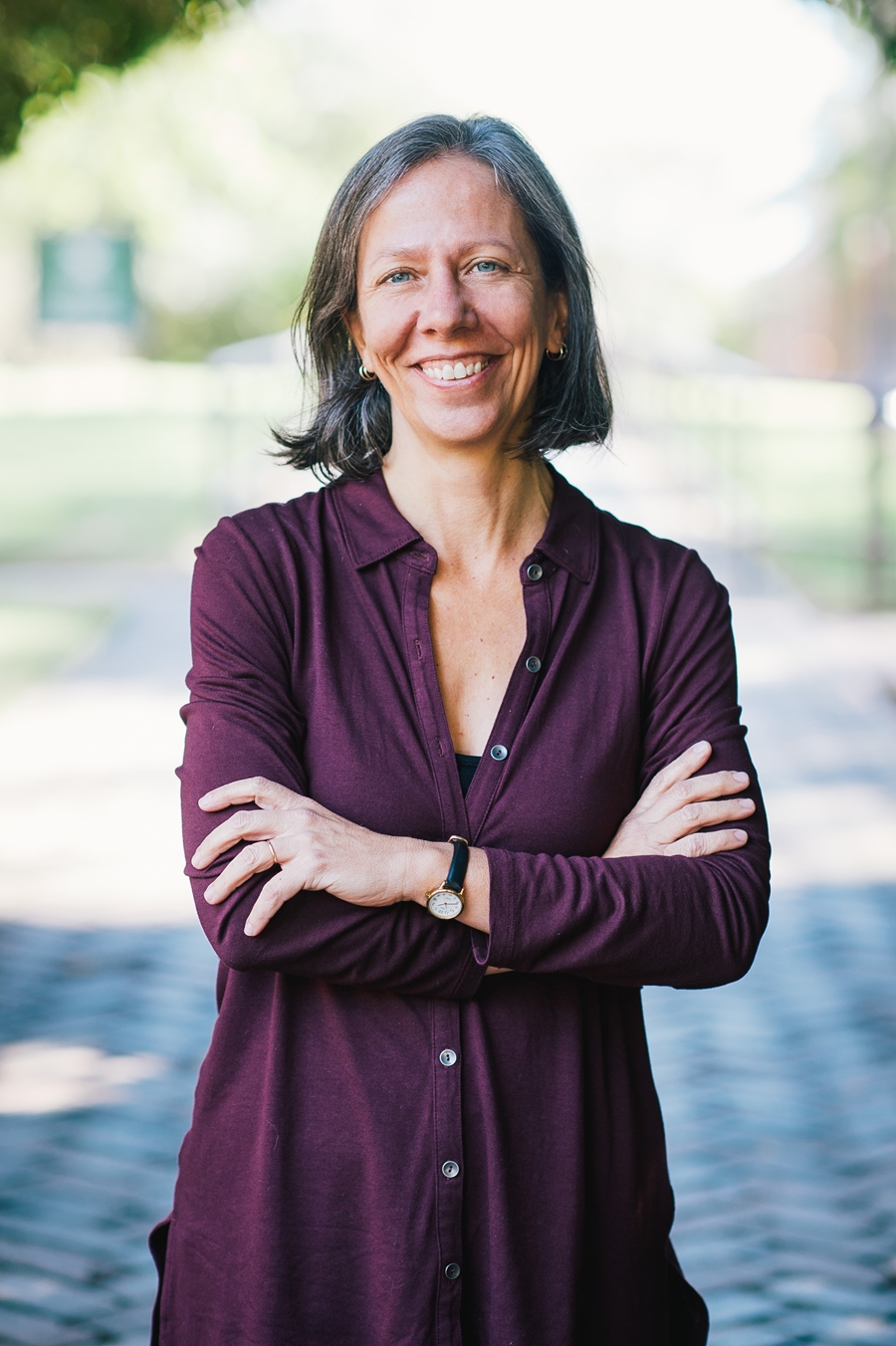The Pryor Center Presents lecture series opens this spring with Kathleen DuVal, from the University of North Carolina, Chapel Hill. DuVal will present "Tecumseh in Arkansas" at 6 p.m. Wednesday, Jan. 29, at The David and Barbara Pryor Center for Arkansas Oral and Visual History in the J. William Fulbright College of Arts and Sciences.
This lecture will explore how thousands of Native Americans found hope in the Shawnee military leader Tecumseh and his brother, the prophet Tenskwatawa. The brothers were known for promoting tribal unity and founded the multi-tribal settlement known as Prophetstown in the early 1800s in the Ohio Valley, north of present-day Lafayette, Indiana.
But Tecumseh knew he would need more supporters to defeat the United States. He looked west to Arkansas and its large Native American nations, including the Quapaws and Osages, and also the Cherokees, Delawares and Shawnees who had recently moved to Arkansas seeking new homes. So in 1810 and 1811, Tecumseh set out to try to persuade them that American Indians should put aside their differences and unite against the rising threat in the east.
DuVal, the Bowman and Gordon Gray Professor in the History Department at the University of North Carolina, Chapel Hill, is a scholar of early American and American Indian history. Born in Fayetteville, Arkansas, she studied at Stanford (B.A.) and the University of California, Davis (Ph.D.) and held an Andrew W. Mellon Postdoctoral Fellowship at the University of Pennsylvania's McNeil Center for Early American Studies before joining the faculty at UNC in 2003.
DuVal is the author of Independence Lost: Lives on the Edge of the American Revolution (Random House, 2015), which tells the little-known story of Spanish, French, British, Chickasaw, Creek and African American people who fought in the American Revolution in the Gulf South.
DuVal is also the author of The Native Ground: Indians and Colonists in the Heart of the Continent (University of Pennsylvania Press, 2006) and the co-editor of Interpreting a Continent: Voices from Colonial America (Rowman and Littlefield, 2009), which she edited with her father, the literary translator John DuVal.
As a Guggenheim Fellow, DuVal will be writing a book on American Indian dominance in the centuries before 1850. She lives in Durham, North Carolina, with her husband and sons.
Upcoming Pryor Center Events
- Feb. 5 — Pryor Center Presents: Alex Kingsbury "Opinion Journalism in the Age of Trump" at 6 p.m.
- March 12 — Pryor Center Showcase: Pianist Randy Goodrum at 7 p.m.
The Pryor Center is located at 1 East Center Street, Suite 120, and parking is available on the Fayetteville Square. The Pryor Center Presents events are all free and open to the public. Visit pryorcenter.uark.edu to add the Pryor Center events calendar to yours.
About The David and Barbara Pryor Center for Arkansas Oral and Visual History: The David and Barbara Pryor Center for Arkansas Oral and Visual History is an oral history program with the mission to document the history of Arkansas through the collection of spoken memories and visual records, preserve the collection in perpetuity, and connect Arkansans and the world to the collection through the Internet, TV broadcasts, educational programs, and other means. The Pryor Center records audio and video interviews about Arkansas history and culture, collects other organizations' recordings, organizes these recordings into an archive, and provides public access to the archive, primarily through the website at http://pryorcenter.uark.edu. The Pryor Center is the state's only oral and visual history program with a statewide, seventy-five county mission to collect, preserve, and share audio and moving image recordings of Arkansas history.
About the J. William Fulbright College of Arts and Sciences: The J. William Fulbright College of Arts and Sciences the largest and most academically diverse unit on campus with three schools, 16 departments and 43 academic programs and research centers. The college provides the core curriculum for all University of Arkansas students and is named for J. William Fulbright, former university president and longtime U.S. senator.
About the University of Arkansas: The University of Arkansas provides an internationally competitive education for undergraduate and graduate students in more than 200 academic programs. The university contributes new knowledge, economic development, basic and applied research, and creative activity while also providing service to academic and professional disciplines. The Carnegie Foundation classifies the University of Arkansas among only 2.7 percent of colleges and universities in America that have the highest level of research activity. U.S. News & World Report ranks the University of Arkansas among its top American public research universities. Founded in 1871, the University of Arkansas comprises 10 colleges and schools and maintains a low student-to-faculty ratio that promotes personal attention and close mentoring.
Contacts
William A. Schwab, executive director
Pryor Center for Arkansas Oral and Visual History
479-575-5181,
